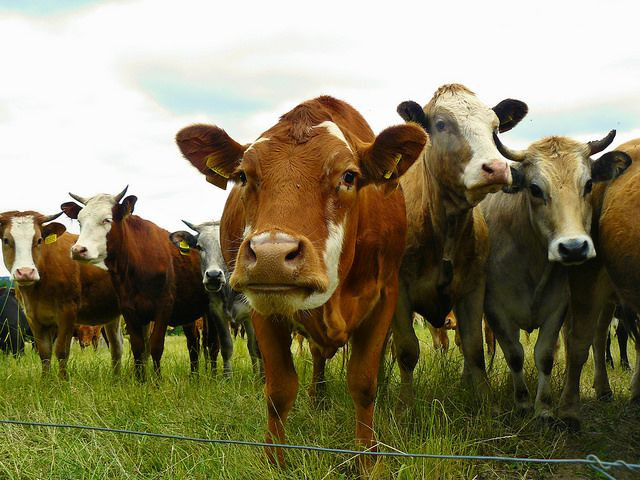Switching To A Healthy Diet Will Help You Live Longer, And Also Cut Down Greenhouse Gas Emissions

While many people take their own health into account when deciding on what they eat, they rarely consider the impact certain dieting options can have on the environment. A recent study conducted at the University of Minnesota’s Institute on the Environment has found that adopting a healthier diet can help protect us from diabetes and heart disease development while protecting the environment from agricultural greenhouse gas emissions and the destruction of habitats home to endangered species.
"We showed that the same dietary changes that can add about a decade to our lives can also prevent massive environmental damage," David Tilman, a professor in the University's College of Biological Sciences and resident fellow at the Institute on the Environment, said in a statement.
Tilman and his colleagues gathered existing data on the environmental costs of food production, diet trends, the relationship between diet and health, and population growth. Between 1961 and 2009, consumption of meat protein, empty calories, and total calories per person increased along with total income. After analyzing the data, researchers found that if current eating trends persist, diets in 2050 will contain 60 percent more empty calories, 25 to 50 percent more pork, poultry, beef, dairy, and eggs, and fewer servings of fruits and vegetables.
Diets in 2050 would also increase greenhouse gas emissions by 80 percent and increase habit destruction through agriculture land clearing. The research team determined that modifying eating habits toward a healthier dieting concept – such as Mediterranean, pescatarian, and vegetarian diets – could reduce a person’s risk for type 2 diabetes by 25 percent, heart disease by 20 percent, and certain types of cancer by 10 percent, while also helping the world cut down on greenhouse gas emissions and habitat destruction.
"In particular, if the world were to adopt variations on three common diets, health would be greatly increased at the same time global greenhouse gas emissions were reduced by an amount equal to the current greenhouse gas emissions of al all cars, trucks, planes, trains, and ships,” Tilman added. “In addition, this dietary shift would prevent the destruction of an area of tropical forests and savannas as large as half of the United States."
A 2011 report issued by the Environmental Working Group (EWG) revealed that worldwide meat production had tripled in the past four decades to around 600 billion pounds. If this rate of meat production continues, EWG estimates that by 2050 it will reach about 1.2 trillion pounds of meat per year. This amount of meat production will have a significant impact on environmental health by requiring more water, land, fuel, pesticides, and fertilizer.
Source: Clark M, Tilman D. Global diets link environmental sustainability and human health. Nature. 2014.



























